KHARKIV OBLAST, Ukraine—An old green Soviet Lada, speeding, skids on a dirt road. Behind the car, thick black smoke billows into the June sky. A Russian Grad missile has just hit a small village about 10 kilometers from the front.
A hundred meters away, hidden by a camouflage net, in front of a 19th-century wooden house, Sacha, a soldier of the 247th Kharkiv Territorial Defense Brigade, goes about his morning ritual. With a fluid motion, he combs his long beard, which, resembling that of an Orthodox priest, earned him his war name: Kapelan (the chaplain). He fills a small leather gourd with yerba mate (a typical South American drink) before inserting a metal straw.
With his cap firmly on his head and his legs stretched out on a camping chair, Sacha can finally start his breakfast.
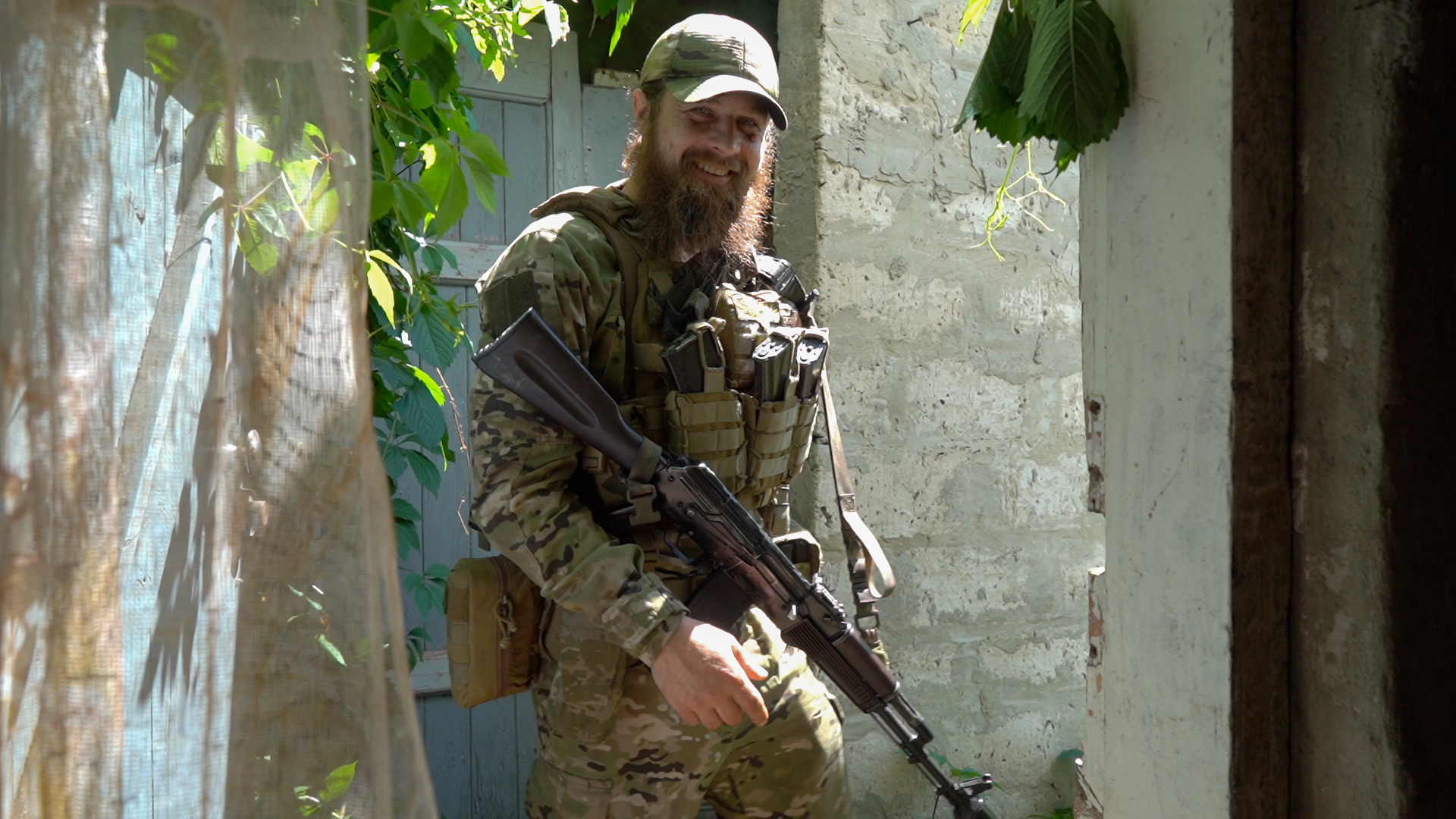
This morning’s bombing didn’t scare him much. A volunteer from the early days after Russia’s invasion of Ukraine more than two years ago, Sacha, originally from the region, has been in every battle. First in Kharkiv at the start of the war, then in Bakhmut before returning to Kharkiv in northeast Ukraine, where the Russians opened a new front on May 11 of this year.
Engaged on the northern front from the start of the Russian counteroffensive, the men of the 247th, supported by the rest of the Ukrainian army, managed to seal the breaches in the Ukrainian defense. They have kept the Russians at bay during the Kharkiv offensive, preventing them from crossing the river that runs through Vovchansk and from advancing further on the Liptsy front. Both U.S. and Ukrainian officials have declared the Kharkiv offensive a failure for the Russians.
“We know the terrain very well, much better than the Russians,” explains the soldier in his 30s. “We’ve fought here before and we are more motivated than ever to defend Kharkiv. Our families and friends live here.”
Next to him, pensive, Oleksandra, the only woman in the brigade, squats. Her azure blue eyes get lost in the horizon that, under a June sky, shimmers with sunlight. Cigarette in mouth, Oleksandra bursts into laughter at every interaction and brings a swollen hand to her face. “From digging trenches,” explains the 33-year-old woman. “I sprained my forearm.”
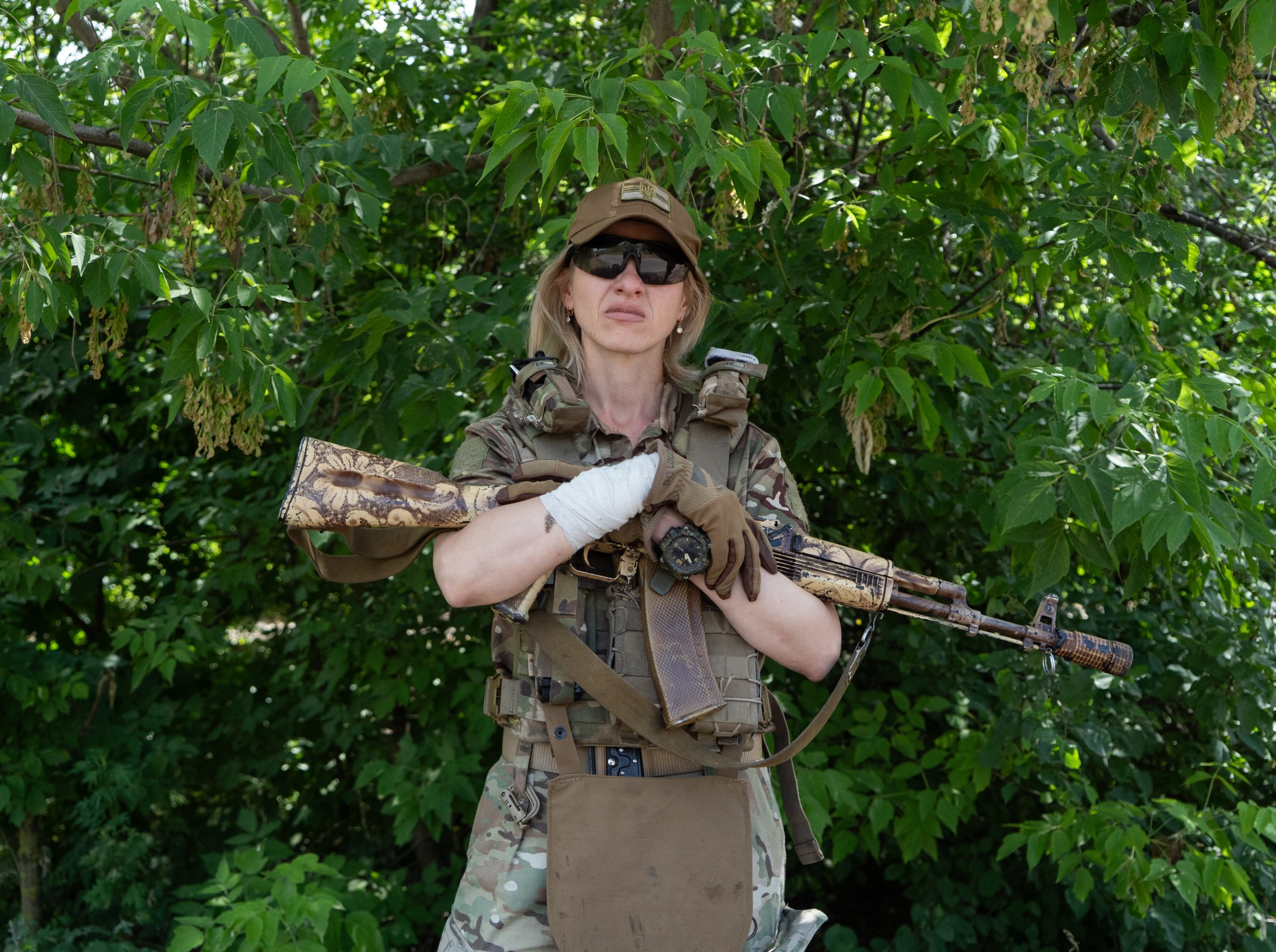
Engaged since the beginning of the war, Oleksandra fights, cares for her fellow soldiers, and listens. “The fights are tough, and you know how men are … they have trouble talking to each other, so I’m here to listen. Over time, I’ve become the brigade’s psychologist,” she explains before bursting into laughter.
After a week of fighting, everyone tries to rest. Hearts are lighter and tense, stressed faces begin to relax.
On mission.
Viatcheslav, the 45-year-old brigade commander, walks briskly through a forest in Kharkiv Oblast. His eyes are fixed on the sky and the radio on his shoulder finally crackles: “The sky is clear, no more drones, we can go.” He and his troops came to scout a Ukrainian tank destroyed by a Russian drone in the Peremoha sector (“victory” in Ukrainian), a small village located between the third and second lines of the front.
A former MMA fighter in Kharkiv, Viatcheslav knows the region well. “I used to play war here when I was a kid,” the commander explains with a grin.
Though weeks of intense combat show on his face, his morale has rebounded. “The fights have been very tough,” Viatcheslav explains. “Despite the limited equipment and men we had, we managed to stop the Russians and inflicted heavy losses on them. They tried very hard but completely failed to break our front.”
For the commander, it’s proof that Ukraine will eventually win the war. “We know why we’re fighting,” he says. “In contrast, when we capture Russians, we see that they are neither prepared nor motivated. To me, they don’t stand a chance against us.”
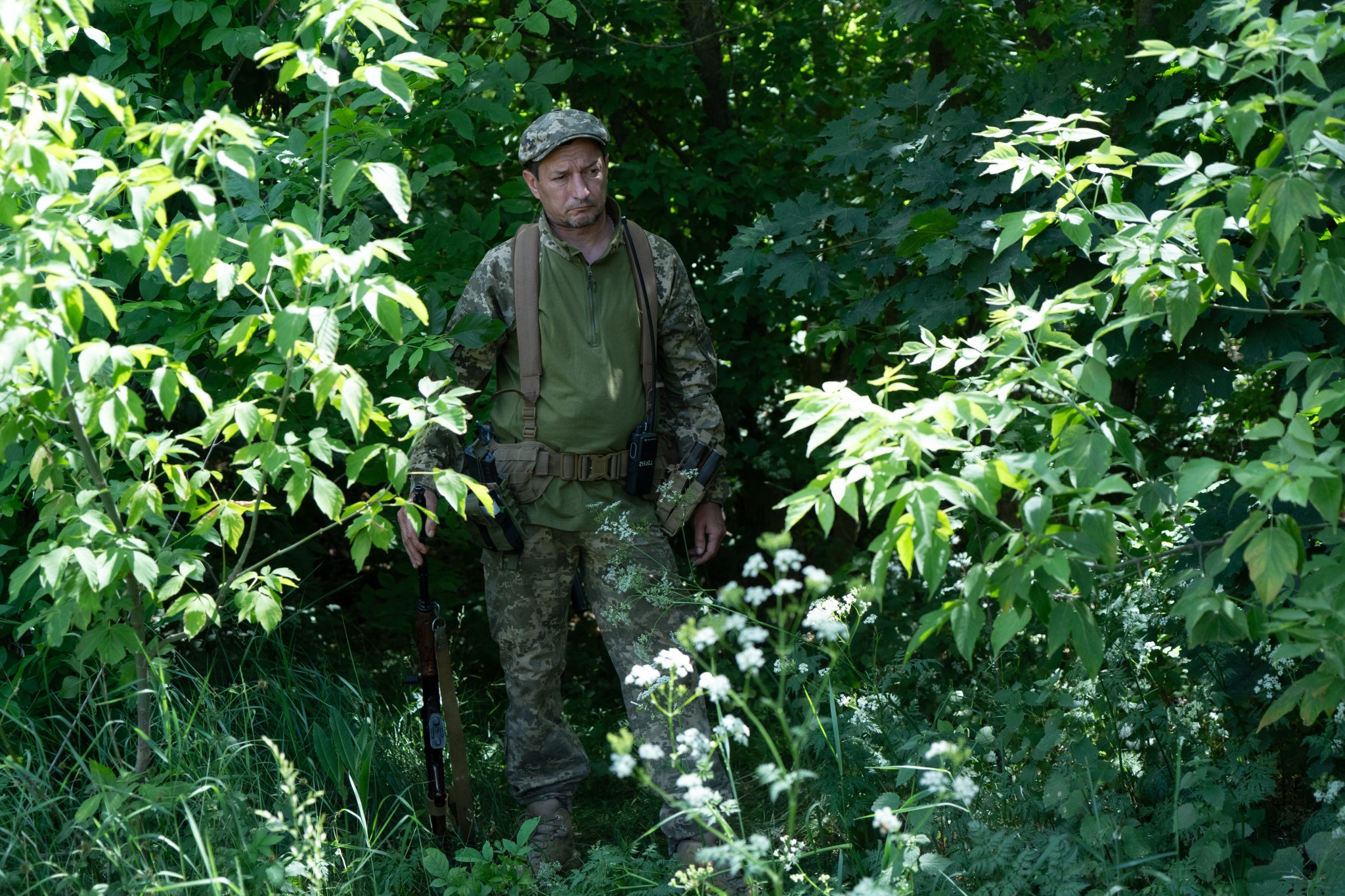
Despite Ukrainian success on the Kharkiv front, Ukrainian forces struggling to the east in the Donbas region continue to retreat day by day. For Hamlet, the 247th’s chief drone operator, the dynamic in the Donbas isn’t due to a Russian desire to pin Ukrainian forces in Kharkiv to prevent them from deploying to the eastern front. On the contrary, Hamlet believes Russian forces have pressed harder in the Donbas because the Ukrainian army was outgunned and struggling while waiting for the delivery of supplies as part of a new military aid package the U.S. Congress passed in April.
Viatcheslav, buoyed by Ukraine’s successes on the Kharkiv front, continues to believe in an imminent victory. “The offensive wasn’t a surprise and the Russians had to sacrifice many men and materials that they won’t be able to use in the Donbass.”
The commander also thinks the tough days are behind them and that Western aid on the front is beginning to make a difference. “I can’t reveal everything because it’s classified, but all I can say is that we’re seeing an improvement in our capabilities and our brigade has received more than we could have hoped for.”
Hamlet confirms this as he heads out on another mission that night. Serhii, one of the brigade’s soldiers, helps him load his car with drones. Between trips, Hamlet praises the Western supplies.
“There’s nothing better than American, French, or British weapons to strike deep,” he says. “So, of course, we’re happy to now be able to use them against Russian territory. But it’s hard, for now, to predict its impact. Only time will tell.”
Hamlet, in the soft light of dusk, takes a last puff of his cigarette before leaving. He gestures, then starts his car and drives into the horizon without saying goodbye to anyone in his brigade.
He never returned. In a northern forest, a few days after his departure, a piece of shrapnel pierced his heart and ended his young life under a summer rain.
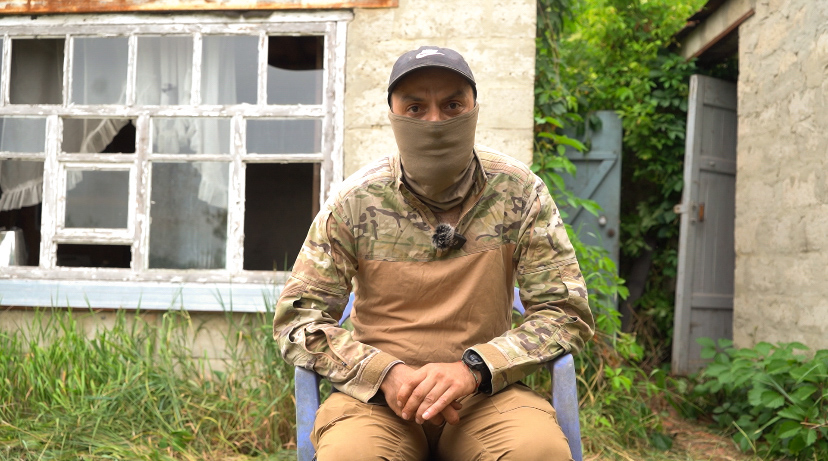
Keeping the faith.
Returning from another mission just as Hamlet left for his final one, other soldiers of the brigade stationed in a wooden house busily prepare a meal. Vadim, 40, shirtless, cuts a chicken and prepares shashlik on a metal skewer. Next to him on a wooden chair, another soldier smokes a cigarette and heats a coffee pot on a small stove. All around a rusty metal grill, they relax and joke.
“We don’t know if we’ll still be alive next week, so we live as if there’s no tomorrow,” says Serhii, explaining that they try to have a good time and eat well almost every evening.
“It’s also important to keep morale up and we need moments to relax,” Viatcheslav adds. “They’ve all been fighting since the beginning of the war and don’t often see their families.”
Yann, a former bus driver in Kharkiv, has only seen his wife and daughter for about 15 days since February 2022. “At first, the hardest part was not seeing our family,” he says. “Then, it was Bakhmut where I was injured. Now, it’s the waiting, not knowing what tomorrow will bring.”
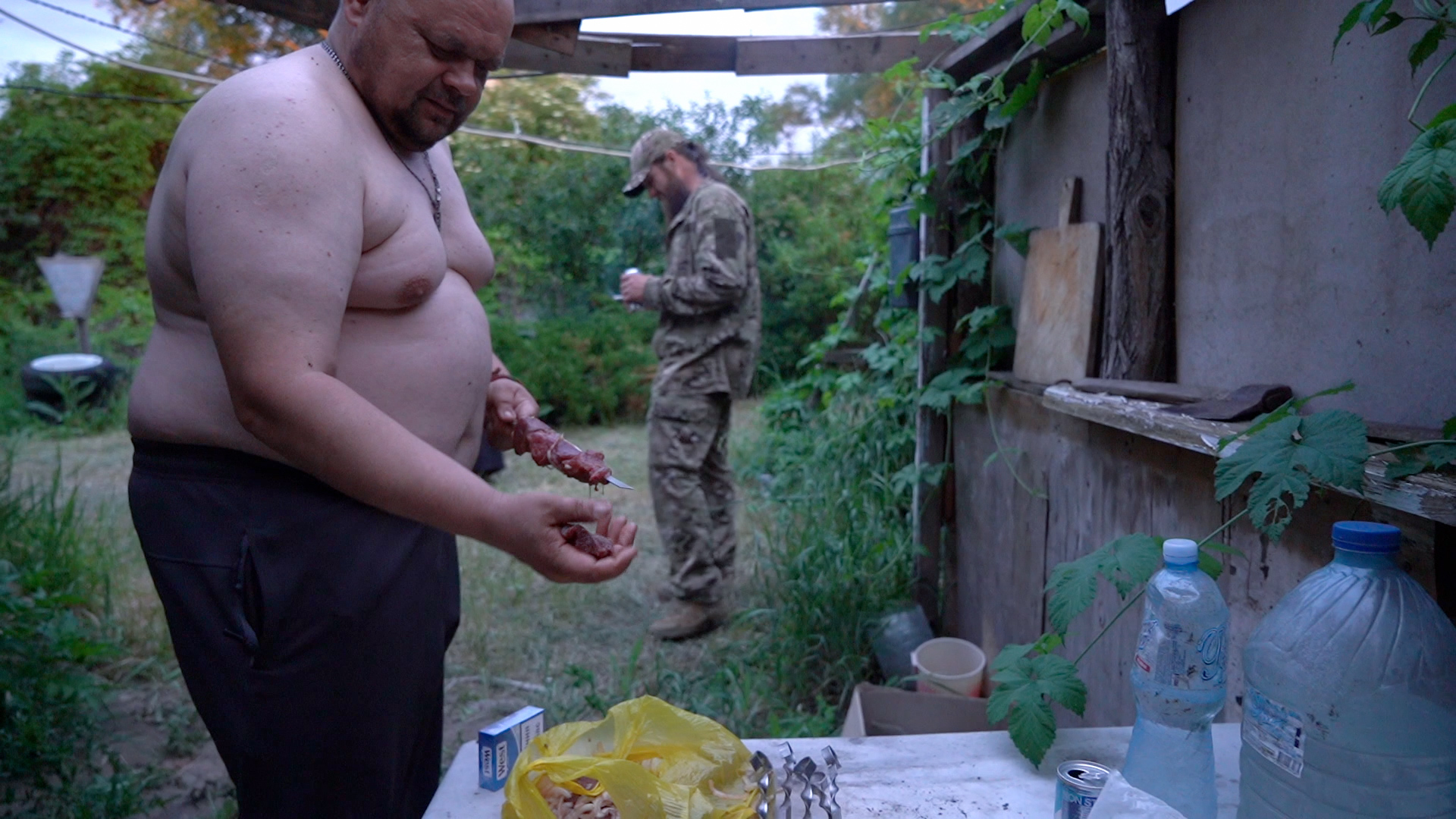
Sitting on a camp bed in a dusty room, Yann eventually gets up. The blue evening light plays across the prematurely aged lines of his face. With a sad look, he steps to the door, lights a cigarette, and stares out.
The sun sets over Viatcheslav’s men and between the flames of a fire, the wind carries away Oleksandra’s laughter.
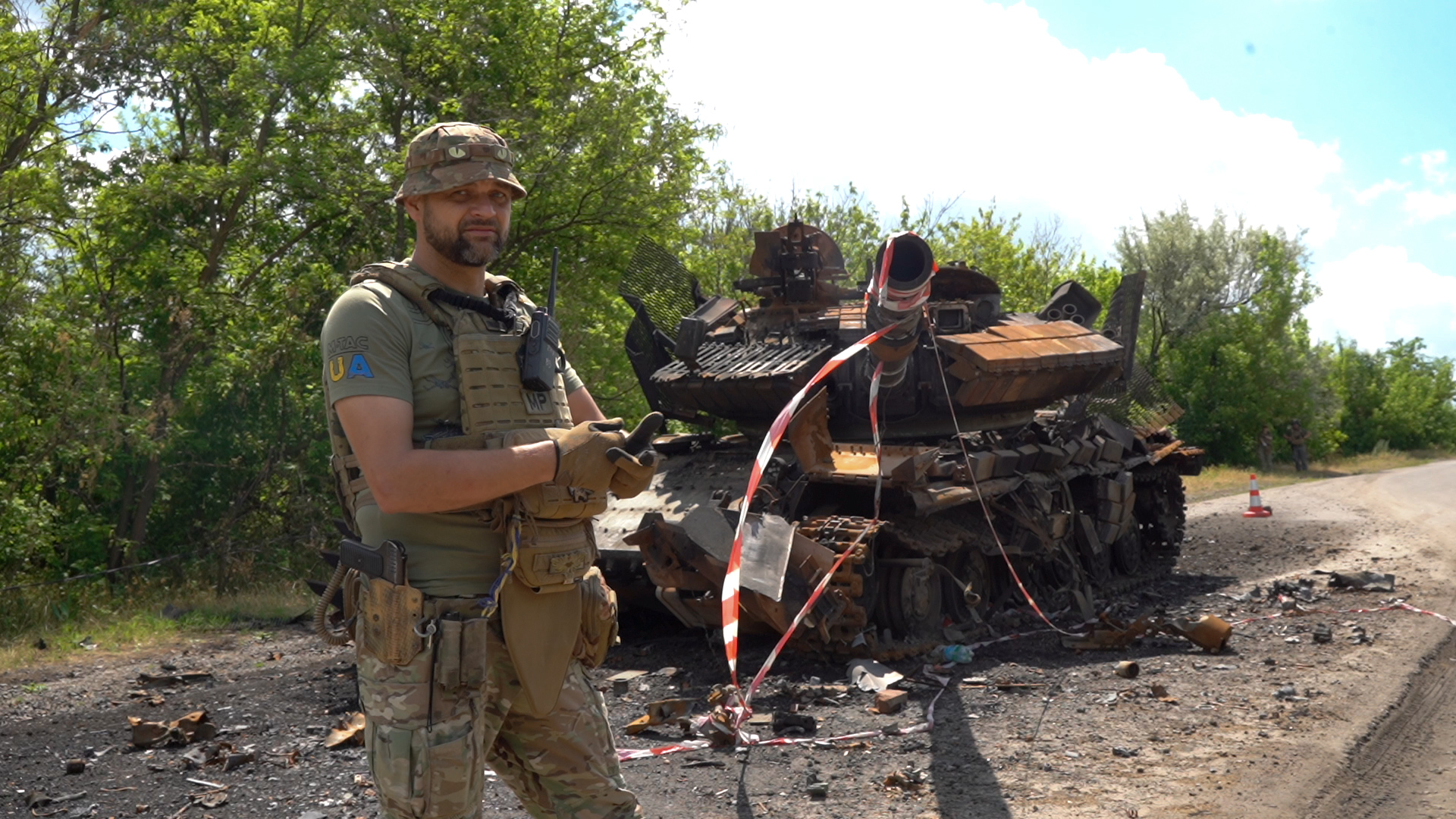
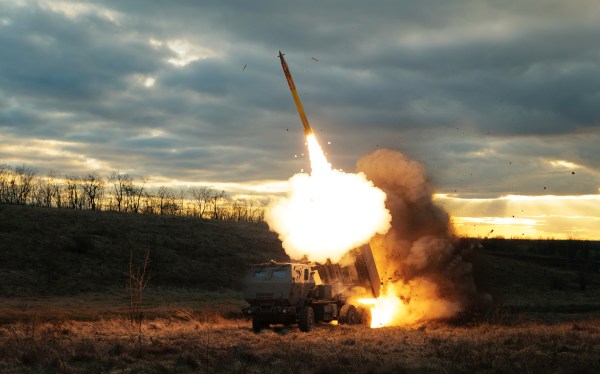
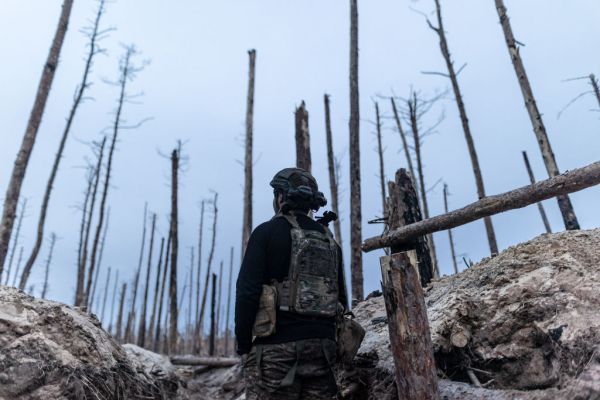
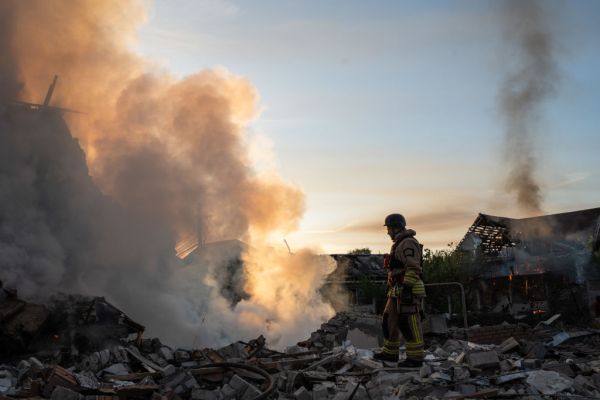

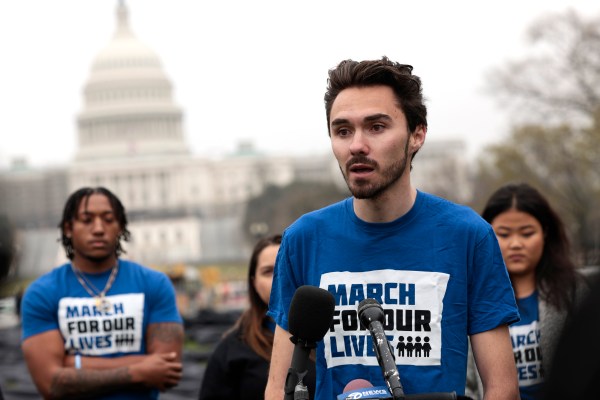



Please note that we at The Dispatch hold ourselves, our work, and our commenters to a higher standard than other places on the internet. We welcome comments that foster genuine debate or discussion—including comments critical of us or our work—but responses that include ad hominem attacks on fellow Dispatch members or are intended to stoke fear and anger may be moderated.
With your membership, you only have the ability to comment on The Morning Dispatch articles. Consider upgrading to join the conversation everywhere.